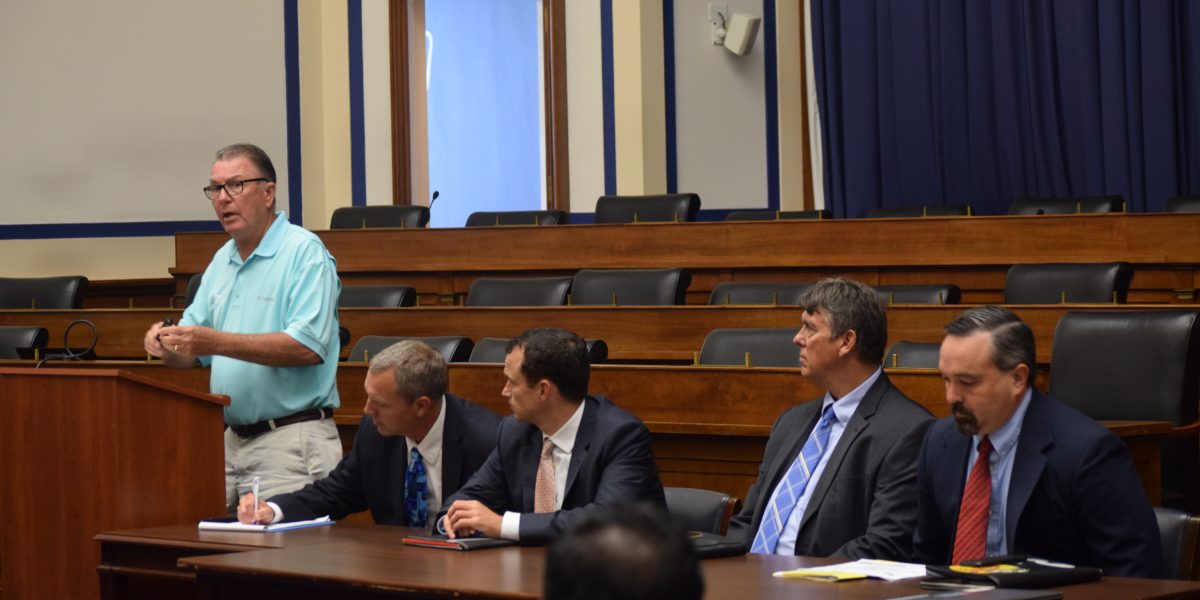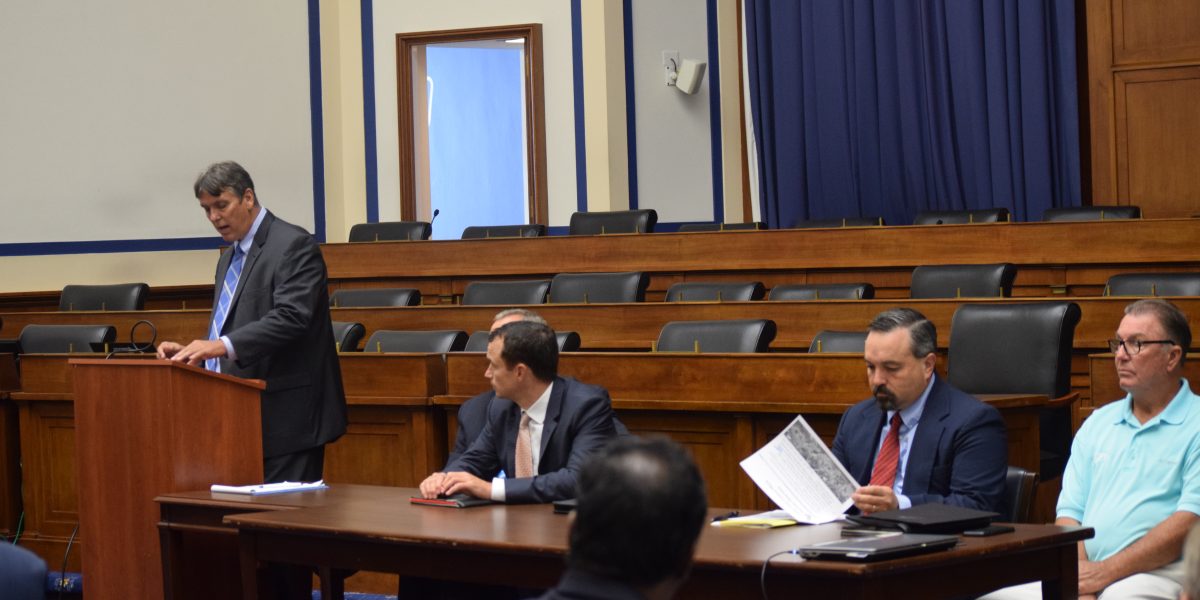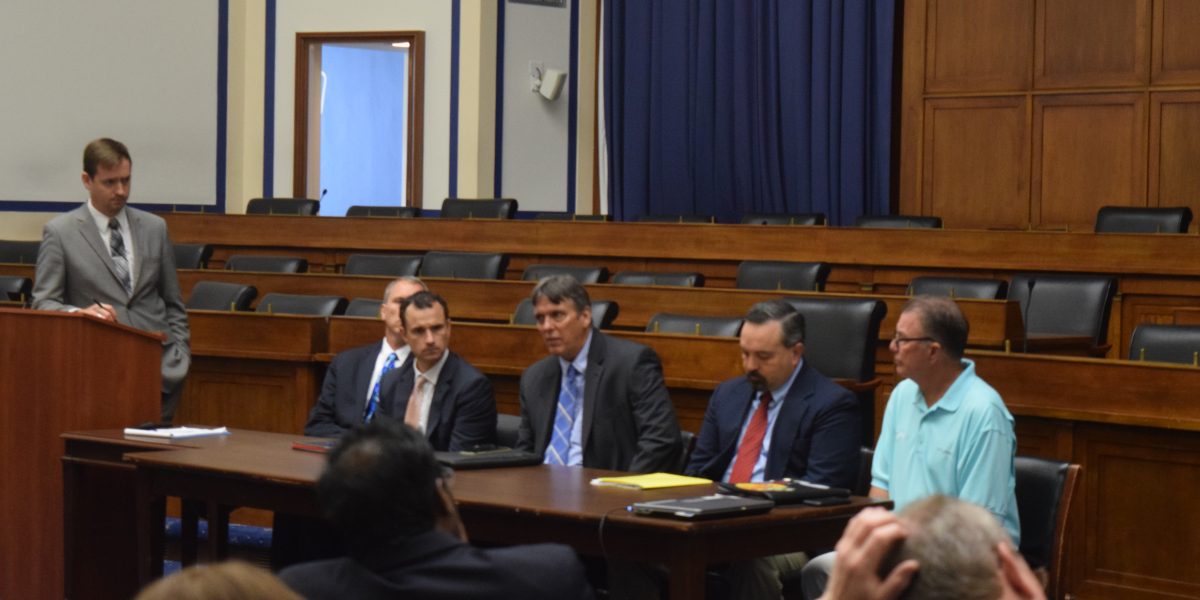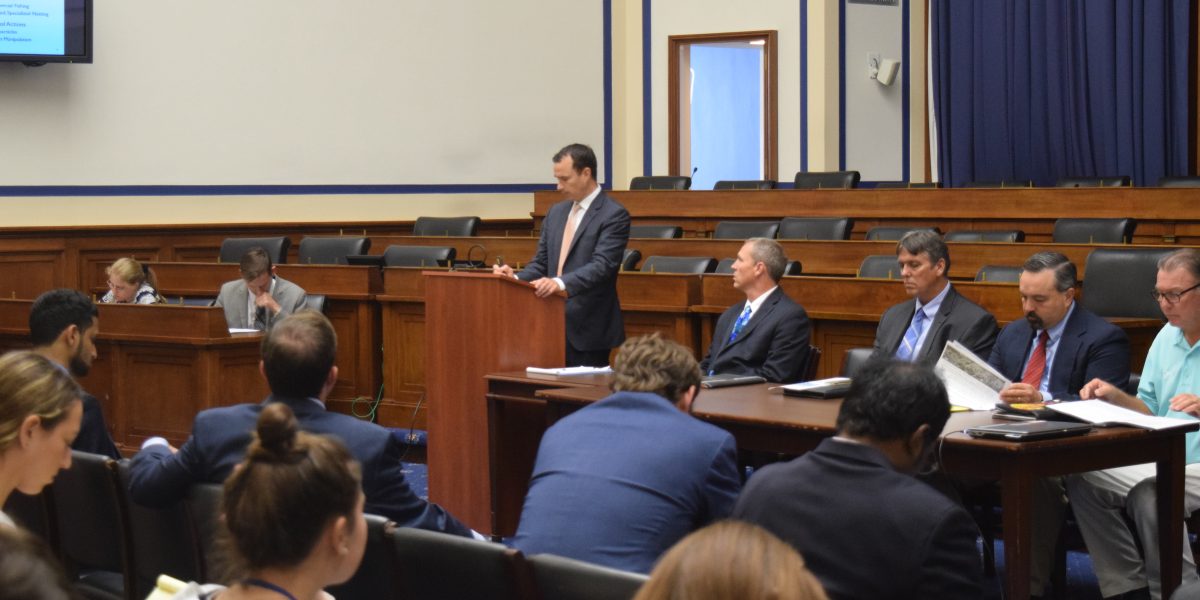July 25, 2018
The Northeast-Midwest Institute Mississippi River Basin Program and the Mississippi Interstate Cooperative Resource Association (MICRA) hosted a Congressional briefing on the ongoing efforts to control the spread of Asian carp in the Mississippi River and Ohio River Basins on Wednesday, July 25th.
Greg Conover of the US Fish and Wildlife Service’s MICRA discussed the nationwide approach of the control and management of Asian carp as well as its increased funding since 2015. He also touched on how this has enabled more state partnerships and more prevention and control efforts.
Nick Frohnauer of the Minnesota Department of Resources provided an overview of the detection, assessment, and management of the species in the Upper Mississippi River Basin. These efforts include the creation of a management zone to prevent the upstream movement of Asian carp with strategic deterrents that include acoustic barriers and flow modifications, while also reducing the population of the fish in the zone through mass removal through commercial fishing and targeted netting.
Ron Brooks of the Kentucky Department of Fish and Wildlife then explained that those working on Asian carp management in the Ohio River Basin have made similar efforts in order to reduce the number of fish in the middle region of the basin, which currently is categorized as having observed spawning patches. He also explained that one of the main upcoming efforts to address the issue is to fund contract fishing between that region and the western part of the river that is categorized as having established, verified spawning.
Aaron Woldt of the US Fish and Wildlife Service (USFWS) focused on the success of acoustic deterrents and rays in laboratory and pond settings. He explained that the question now is whether bio-acoustic fish fences will work on a large-scale system. USFWS has identified two large-scale field testing sites to address this concern.
Finally, Bill Taylor of Fishing League Worldwide discussed the negative impacts Asian carp have on recreational fishing and local economies including less tourism and fewer tournament participants. He noted that his organization has been engaging with the public on this topic.
Overall, the briefing provided Congressional staff, regional and environmental organizations, and interested members of the public the opportunity to hear directly from stakeholders from the Upper Mississippi and Ohio Rivers about the current efforts to monitor, control, remove, and deter the spread of Asian carp. It also facilitated a discussion of the impact that this invasive species has on the recreational fishing and related industries.
A full audio recording of the briefing is available here.
The slides used during the briefing are available here.
For more info on MICRA, please visit their website here.



